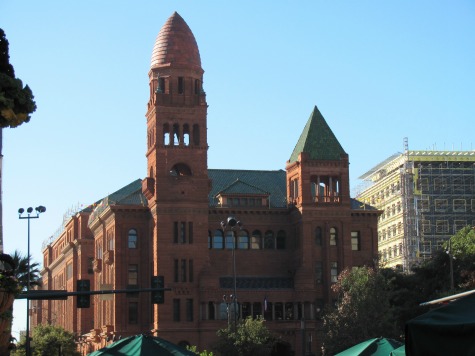
SAN ANTONIO, TX–Shortly after Lieutenant Governor David Dewhurst demanded action by the Texas Secretary of State and Attorney General’s offices, Bexar County District Attorney Susan D. Reed was handed three official voter registration complaints as a result of Battleground Texas’ (BGTX) campaign activities late Friday.
Given the statistical likelihood that Texas Attorney General Greg Abbott will face State Senator Wendy Davis in the 2014 General Election, the sitting AG opted to recuse himself from any official investigation into potentially illegal campaign tactics carried out by his opponent’s field support team.
Since the initial revelation of San Antonio-based field operatives for BGTX were caught on camera allegedly conspiring to commit violations of the Texas Election Code by harvesting “confidential” voter data, Battleground Texas’ tone and response has hardly changed. A spokesperson for the political outfit continued to personally attack Project Veritas Founder James O’Keefe without direct refutation of the charges.
“The allegations are based on footage by admitted criminal James O’Keefe whose partisan Republican antics of doctoring videos are well known,” Ellis Brachman, claimed. Brachman added that Battleground Texas’ legal team was currently working on a response to “expos[ing] these claims as utterly without foundation in Texas law.”
Battleground Texas’ delayed explanation may be justified, given recent attempts to rationalize the behavior. Breitbart News’ Ken Klukowski took great issue with Texas Democratic Party legal operative Buck Wood’s attempt to brush aside concerns last week. The developing legal question focuses on whether deputy voter registrars like BGTX’s Jennifer Longoria and others are held to the same privacy standards of the county officials that trained and deputized them. Breitbart Texas reported last week that top officials in Bexar, Harris and Travis Counties all taught BGTX volunteers that they must not share confidential information like voters’ phone and social security numbers with their political operations. Klukowski furthers the argument by summarizing a recent ruling in the U.S. 5th Circuit Court of Appeals that handled a failed challenge to the specific Texas law potentially violated:
[T]he relevant provision of Texas Election Code § 13.004 is not merely to keep the government from releasing private information such as a phone number to the general public. That would not explain why VDRs are forbidden by law from “transcribing or copying” the telephone number. The VDR can collect and review voter registrations, then must deliver the forms to the county office for processing onto the voter rolls. The only reason for the specific prohibition on copying phone numbers is to prevent the VDR from retaining that information, for any purpose whatsoever.
Bexar County DA Susan Reed has yet to announce her office’s initiation of a formal investigation into the matter.
Follow Logan Churchwell on Twitter @LCChurchwell

COMMENTS
Please let us know if you're having issues with commenting.